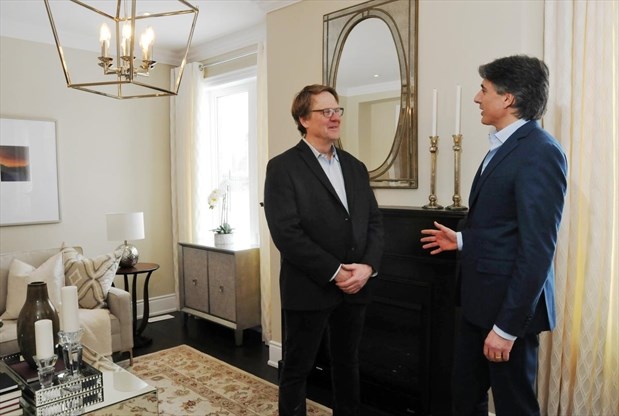Homes improve on Energy Star standards by as much as 55 per cent.
Most visitors to the Riverland neighbourhood in Breslau will see a row of model homes.
Paul Golini sees a research and development laboratory.
“It’s about engaging the broader community in conversation with tangible, real-life examples of how energy efficiency can change the way that we build,” said Golini, co-founder and executive vice-president of Empire Communities.
The Vaughan-based builder launched Riverland in 2006, a master-planned community near the Grand River. The latest phase will bring the subdivision to nearly 800 Empire homes.
“We’ve always built to the Energy Star standards,” Golini said, a standard that exceeds building code requirements for efficiency. But the two test homes at Riverland — Empire calls them Discovery Homes — take energy efficiency to new heights.
Measured against current provincial code, the homes improve upon those minimums by as much as 55 per cent.
Standing in the basement of the most efficient home at a launch event Wednesday, energy consultant John Godden of Clearsphere said the goal is to learn from the pilot program and apply those findings to new homes on a broader scale.
“This house generates less CO2 emissions than a four-cylinder car,” he noted.
Features include improved insulation in basement walls to manage moisture, new air barrier systems to help decrease air leakage, and solar panels testing new options for homes of the future. There’s even a water recycling system from Greyter Water Systems that captures and treats shower and bathtub water, and reuses it to flush toilets.
Other industry partners include DowDuPont Specialty Products, Rockwool Group and Panasonic. Students from George Brown College will be involved in monitoring such things as moisture levels in exterior walls, relative humidity and temperature consistency.
“We’re going to take all the learnings from these homes … and use them in 300 houses,” Godden said.
Even the most efficient home of the group, called the Hybrid Home, isn’t a net-zero building, one that produces as much energy as it consumes. But that wasn’t the intention, Golini said.
“It’s fine to build the utopian zero-carbon home,” but that’s not necessarily practical or cost-effective on a larger home-building scale, he said. “If it’s one a year, you’re really not making a dent in carbon reduction.”
If just a single improvement out of the pilot was adopted and applied it on a mass-production scale, “I consider it a success,” Golini said.
“There is a cost to being an early adopter, there’s no doubt,” he added. But as technology improves and is more widely available, costs tend to fall quickly.
“We’re not really about selling the upgrade,” Golini said. “This is more about learning.”

